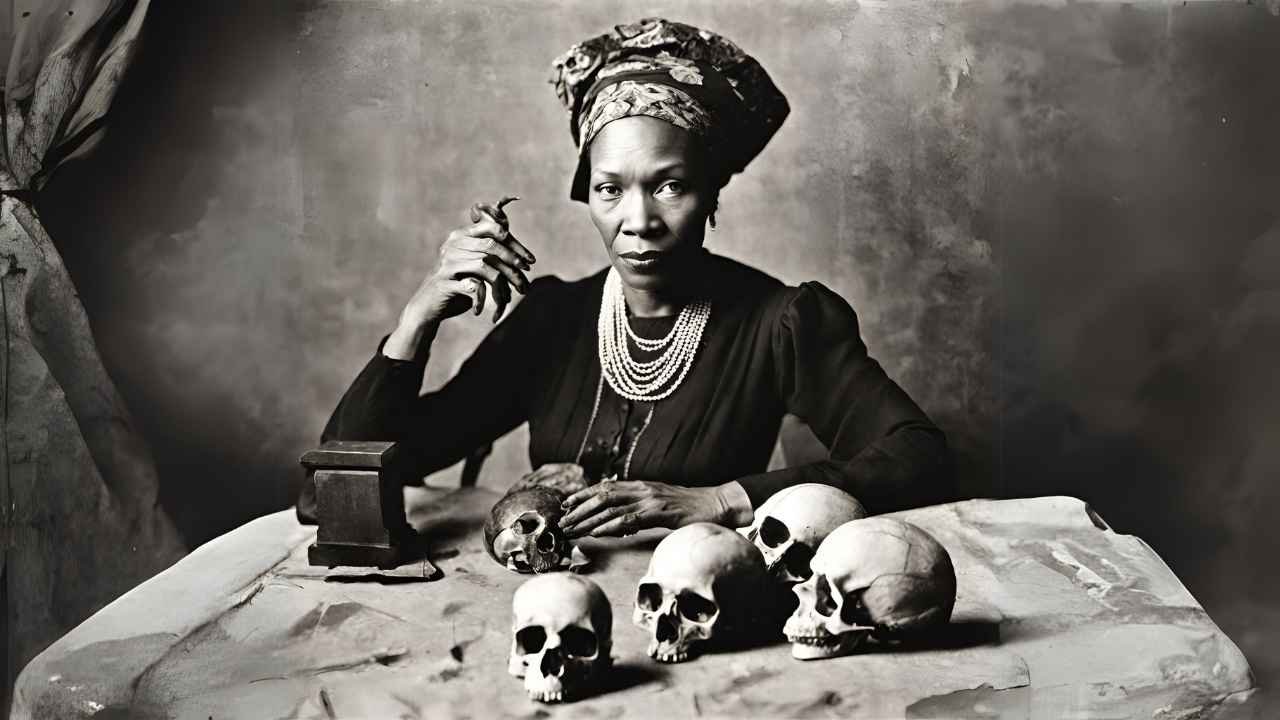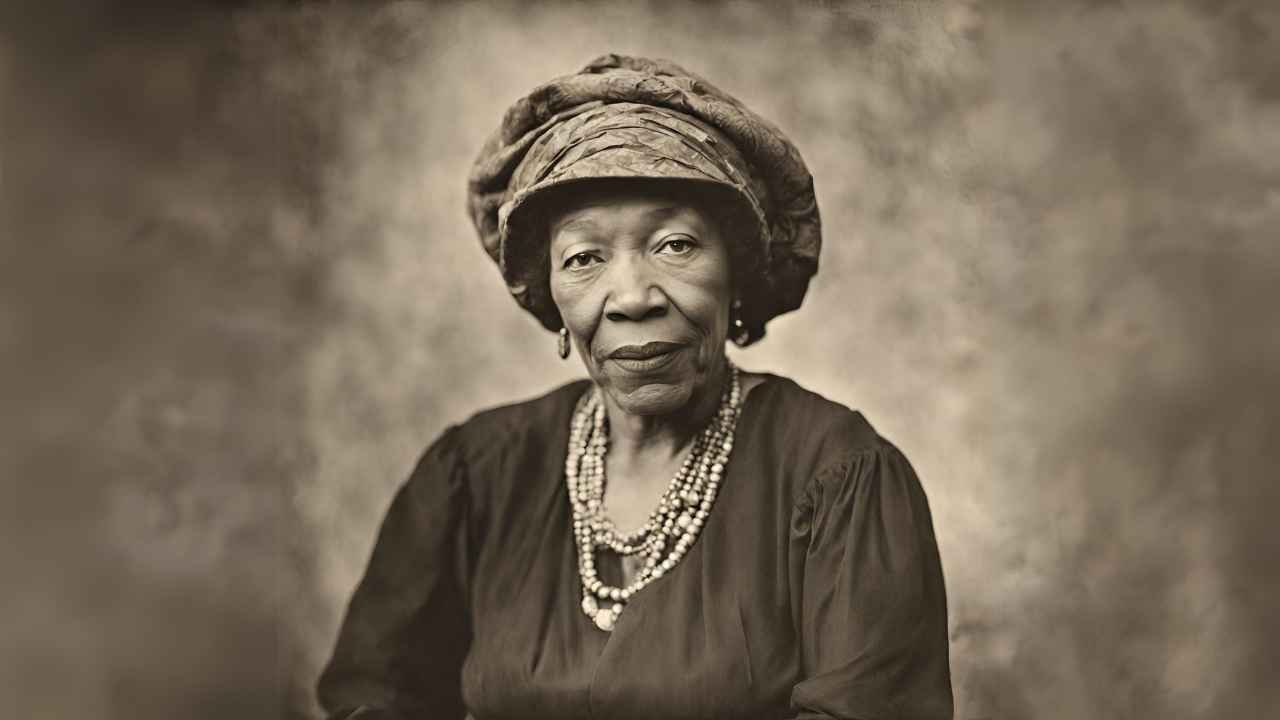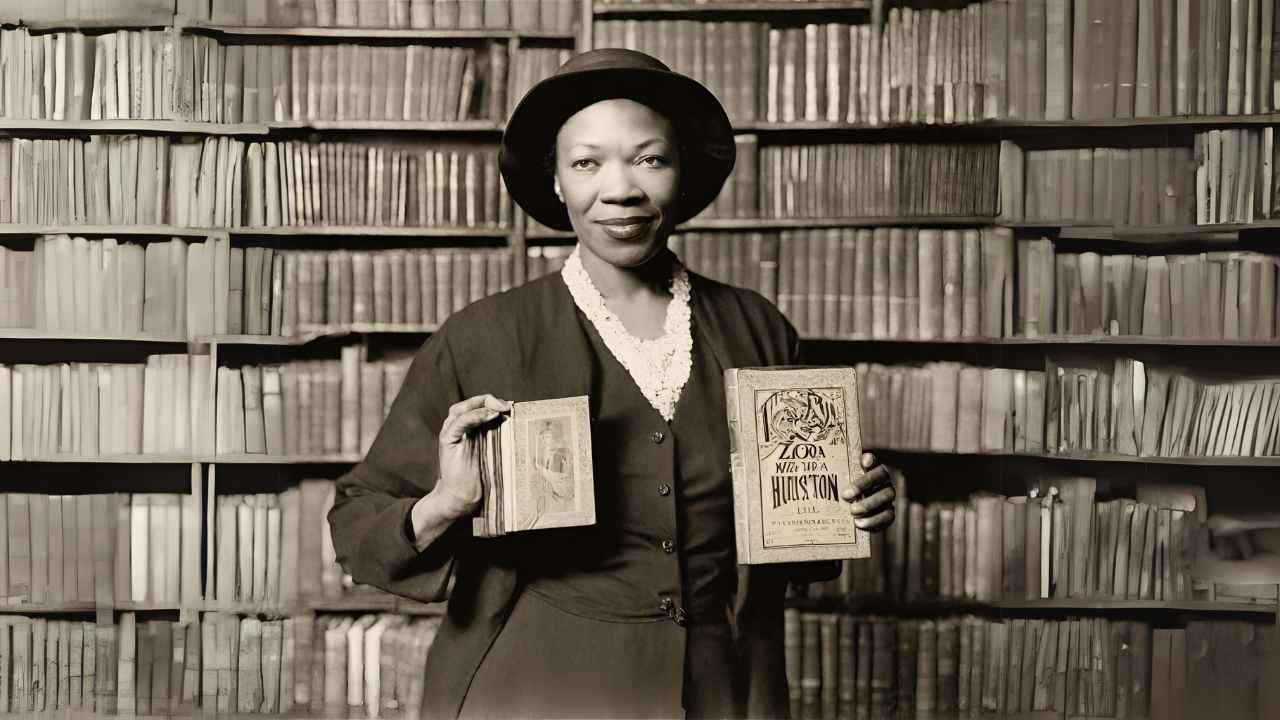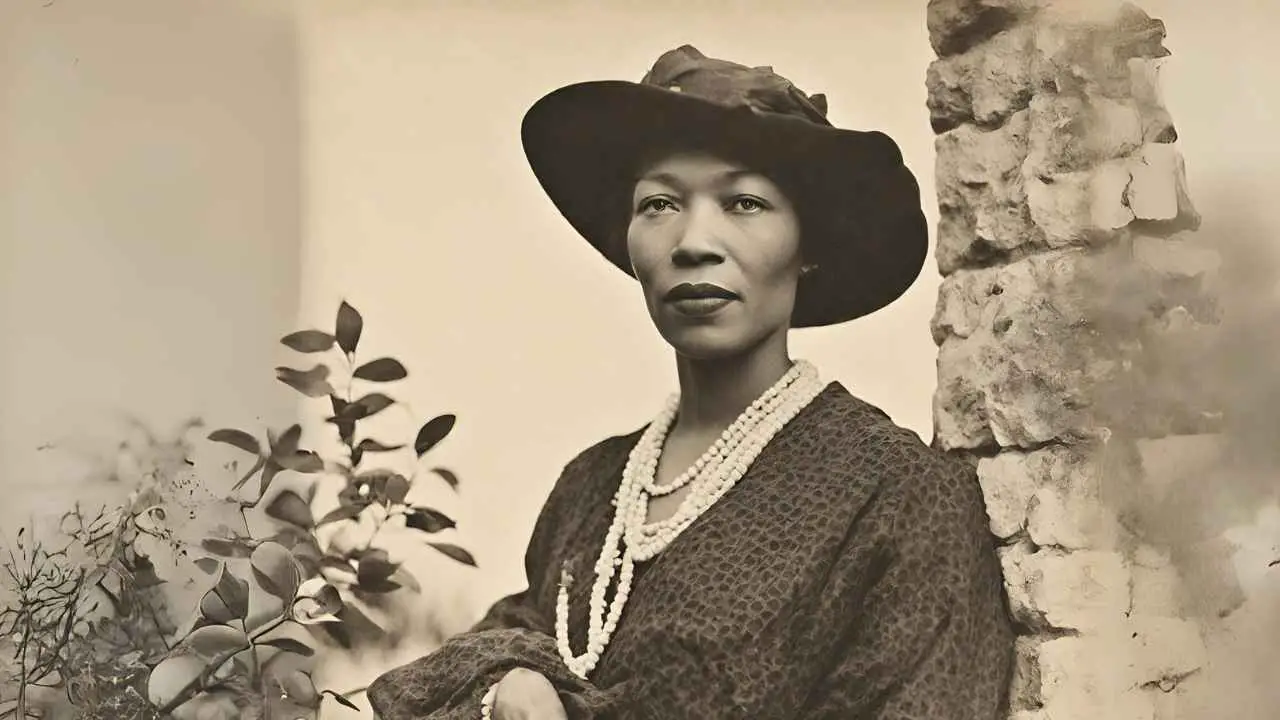Discover the extraordinary life of Zora Neale Hurston, a woman whose voice echoed far beyond her time. Born in the heart of Alabama in 1891 and raised in Eatonville, Florida, Hurston broke barriers as a pioneering African American woman in literature and anthropology. From her early days in one of the first all-black towns in the U.S. to her influential role in the Harlem Renaissance, Hurston’s journey was marked by her unyielding spirit and profound contributions to American culture. Her novel “Their Eyes Were Watching God” stands as a testament to her unique storytelling prowess, blending rich narratives with authentic cultural insights. Despite facing challenges in her later years, Hurston’s legacy continues to inspire and shape the fields of literature, anthropology, and African American studies. Join us as we explore the captivating story of Zora Neale Hurston, a true icon of American history.
Interesting Facts About Zora Neale Hurston
Early Life and Family Background of Zora Neale Hurston

Zora Neale Hurston’s story begins in the small town of Notasulga, Alabama, where she was born in 1891. As the fifth child in a family of eight, Hurston’s early years were nestled in the warmth of a large family. Her life took a significant turn when she was just three years old. The Hurston family packed their belongings and set out for a new life in Eatonville, Florida. This move wasn’t just a change of scenery; it was a step into a unique and pioneering community.
Eatonville holds a special place in American history. It was one of the first all-black towns to be incorporated in the United States. Imagine a place where African Americans could live freely, govern themselves, and cultivate a community spirit unencumbered by the racial prejudices prevalent in much of the country at the time. For young Zora, Eatonville was more than a hometown; it was a canvas of inspiration, a place where her imagination could roam freely, and where her sense of identity as an African American woman could take root and flourish.
Growing up in Eatonville, Hurston was immersed in a world where black voices were not just heard but celebrated. The town’s vibrant culture, rich oral traditions, and strong sense of community would later echo in her works. It was here, in the streets and porches of Eatonville, where Hurston first encountered the stories and folklore that would shape her career as a writer and anthropologist.
This early chapter of Hurston’s life sets the stage for a woman who would grow up to challenge norms and redefine the African American narrative. Her Eatonville upbringing was not just a backdrop but a central character in her life’s story, shaping her worldview and igniting a deep love for her culture and heritage.
Education and Achievements of Zora Neale Hurston

Zora Neale Hurston’s educational journey is a tale of groundbreaking achievements and a deep-rooted passion for her heritage. In 1928, she etched her name in history as the first Black woman to graduate from Barnard College, an achievement that stands as a testament to her resilience and determination.
At Barnard, Hurston pursued a degree in anthropology, a field that was not just a career choice but a calling. Anthropology provided her with the tools to delve deeper into the rich tapestry of African American culture and folklore, subjects close to her heart. Her time at Barnard wasn’t just about academic learning; it was an exploration of identity, culture, and history through an academic lens.
Hurston’s passion for African American culture and folklore was more than just academic interest; it was a personal journey. She saw in her studies a way to explore and document the lives, stories, and traditions of African Americans, particularly those from the rural South. This was a community often overlooked and undervalued in mainstream society, and Hurston sought to bring their stories to the forefront.
Her academic achievements at Barnard were a springboard that launched her into a career where she would use her education to challenge stereotypes and give voice to the African American experience. Hurston’s work in anthropology went hand-in-hand with her literary pursuits, each informing and enriching the other.
Through her groundbreaking achievements in education, Zora Neale Hurston paved the way for future generations of African American women in academia. Her legacy in this field is a reminder of the power of education to break barriers and change narratives. Her degree in anthropology was more than just a certificate of study; it was a weapon she wielded skillfully to fight for the recognition and celebration of her culture.
Harlem Renaissance Involvement of Zora Neale Hurston
Zora Neale Hurston’s involvement in the Harlem Renaissance was not just participation; it was a vibrant and influential presence that left an indelible mark on this cultural movement. The Harlem Renaissance of the 1920s was a flourishing of African American art, literature, and music, and Hurston stood as one of its most dynamic figures.
In the bustling streets of Harlem, a neighborhood in New York City, African American artists and intellectuals found a haven where they could express themselves freely and challenge the racial prejudices of the time. Hurston dove into this creative whirlpool, bringing with her a unique blend of literary talent, anthropological insight, and a deep-seated love for African American folklore.
Her work during this period was characterized by a fearless exploration of black life, both in its everyday realities and its rich imaginative realms. Hurston’s stories and plays often drew from her Southern roots, infusing the Harlem Renaissance with the rhythms, speech, and spirit of the rural South. This blend of urban sophistication and rural tradition added a unique flavor to the movement.
One of Hurston’s most significant collaborations during the Harlem Renaissance was with Langston Hughes, another towering figure of the era. Together, they worked on a play titled “Mule Bone,” a comedy that showcased the richness of black vernacular and folklore. Although their partnership eventually dissolved due to creative differences, their collaboration remains a high point in the history of African American literature.
Hurston’s involvement in the Harlem Renaissance went beyond her literary contributions. She was an embodiment of the Renaissance’s spirit – bold, unapologetic, and innovative. Her presence in Harlem during this time was a beacon for other African American women, showing them that their voices and stories mattered.
Literary Contributions of Zora Neale Hurston

Zora Neale Hurston’s literary contributions are anchored by her most celebrated work, “Their Eyes Were Watching God,” published in 1937. This novel is not just a piece of literature; it is a landmark in African American and women’s literature, resonating with readers for its depth, emotional honesty, and lyrical storytelling.
Set in the early 20th century in the rural South, “Their Eyes Were Watching God” tells the story of Janie Crawford, an African American woman on a quest for her own identity. Through Janie’s journey, Hurston explores themes of love, independence, and self-realization, all while painting a vivid picture of black life in the South. The novel’s rich narrative is a tapestry woven with the dialects and rhythms of African American speech, bringing authenticity and power to the story.
Hurston’s approach to storytelling in “Their Eyes Were Watching God” was revolutionary for its time. She broke away from traditional narrative forms and instead used a strong, narrative voice that reflected the oral traditions of African American culture. This technique not only gave life to her characters but also challenged the norms of how stories about black life were told.
Beyond “Their Eyes Were Watching God,” Hurston’s literary oeuvre includes other novels, such as “Jonah’s Gourd Vine” and “Moses, Man of the Mountain,” as well as short stories, essays, and plays. Each piece of her work showcases her ability to capture the complexities of black life and her unwavering commitment to presenting African American culture with both dignity and creativity.
Hurston’s literary contributions extend beyond the stories she told. She was a pioneer in her portrayal of African American women as complex, independent individuals, challenging the stereotypes and limited roles often assigned to them in literature. Her characters, especially her female protagonists, are celebrated for their resilience, intelligence, and agency.
Anthropological Work of Zora Neale Hurston

Zora Neale Hurston’s contributions as an anthropologist are as significant as her literary achievements. Her anthropological work, particularly her extensive fieldwork in the rural South, played a crucial role in preserving African American folklore, a cornerstone of cultural history often overlooked in academic circles of her time.
Hurston’s approach to anthropology was deeply personal and immersive. She ventured into communities, engaging directly with the people whose stories and traditions she sought to document. This hands-on method was not just about observation; it was about participation and understanding the cultural nuances from within. Her work involved collecting folk tales, songs, and oral histories, which she approached with a unique blend of academic rigor and a genuine respect for the oral traditions she was recording.
One of Hurston’s notable anthropological works is “Mules and Men,” published in 1935. In this collection of folk tales and hoodoo practices, Hurston didn’t just present the stories; she offered insights into the context and culture from which they emerged. Her writing captured the rhythm and cadence of the African American speech, bringing the narratives to life and preserving their authenticity.
Hurston’s fieldwork extended beyond the United States. She also conducted anthropological research in Jamaica and Haiti, exploring the African diaspora’s cultural practices and beliefs. Her work in these countries resulted in another significant publication, “Tell My Horse,” which delves into the voodoo culture and practices of the Caribbean.
Her anthropological endeavors were pioneering, not only in their content but also in their approach. Hurston was one of the first to study African American and Caribbean cultures from an insider’s perspective, challenging the predominantly outsider viewpoints that characterized anthropology at the time. She understood that to truly capture the essence of these cultures, one had to experience them from within, a philosophy that set her work apart.
Controversies and Relationships of Zora Neale Hurston
Zora Neale Hurston’s life and career were not without their controversies and complex relationships, most notably with fellow Harlem Renaissance figure Langston Hughes. Their collaboration and subsequent conflict offer a glimpse into the dynamic and sometimes tumultuous world of literary and artistic creation during this era.
Hurston and Hughes initially found a common ground in their shared passion for African American culture and literature. Their collaboration was a meeting of two brilliant minds, each bringing their unique perspective and talent to the table. One of their most significant joint projects was the play “Mule Bone,” a comedy that showcased the richness of black vernacular and life. The play was seen as a promising fusion of Hurston’s anthropological insights and Hughes’ poetic prowess.
However, the partnership between Hurston and Hughes was not to last. Their collaboration on “Mule Bone” became the center of a heated dispute over authorship and creative control. This disagreement marked the beginning of a rift that would lead to the dissolution of their partnership. The conflict was not just a personal falling out; it reflected the broader challenges of collaboration in the creative arts, where visions and egos often clash.
The Hurston-Hughes controversy also had professional repercussions. “Mule Bone” was embroiled in legal battles and was not staged until many years later, long after both writers had passed away. The dispute left a blemish on the legacy of their collaboration, overshadowing the potential impact of their joint work.
Beyond Hughes, Hurston’s relationships and interactions with other contemporaries were often marked by her strong personality and unapologetic stance on various issues. She was known for her outspokenness and her refusal to conform to expectations, traits that sometimes led to disagreements with peers and critics.
Later Life and Legacy of Zora Neale Hurston

The later years of Zora Neale Hurston’s life were marked by a stark contrast to her earlier successes. Despite her significant contributions to literature and anthropology, Hurston faced numerous challenges, including financial struggles and health issues, which overshadowed her final years.
As the Harlem Renaissance faded and literary tastes changed, Hurston’s work fell out of public favor. She struggled to find publishers for her new works, and her earlier writings did not provide her with lasting financial security. This decline in her literary career, coupled with health problems, led to a period of hardship. Hurston worked various jobs, including as a librarian and a substitute teacher, to make ends meet. However, these challenges did not diminish her spirit or her commitment to her craft.
Hurston’s life came to a quiet end in 1960 in Fort Pierce, Florida. She passed away in relative obscurity, and due to her financial situation at the time, she was buried in an unmarked grave in the Garden of Heavenly Rest cemetery. This somber end, however, was not to be the final note in Hurston’s story.
In the 1970s, a resurgence of interest in Hurston’s work was sparked, largely due to the efforts of novelist Alice Walker. Walker, an admirer of Hurston’s work, sought to revive interest in her literary contributions. In a quest to pay homage to Hurston, Walker located her unmarked grave in 1973 and placed a gravestone with the epitaph, “Zora Neale Hurston: A Genius of the South.”
This act of recognition by Walker was a pivotal moment in Hurston’s posthumous legacy. It marked the beginning of a renewed appreciation for her work and her role in American literature. Today, Hurston is celebrated as a pioneering figure in African American literature and a key player in the Harlem Renaissance. Her novel “Their Eyes Were Watching God” is particularly revered and has been widely studied in schools and universities.
Hurston’s legacy extends beyond her literary achievements. She is remembered as a trailblazer who broke barriers for African American women in literature and anthropology. Her life and work continue to inspire writers and scholars, and her story is a testament to the enduring power of resilience and creativity.
Posthumous Recognition of Zora Neale Hurston

The resurgence of interest in Zora Neale Hurston’s work in the late 20th century transformed her from a forgotten figure into a celebrated icon in American literature and anthropology. This posthumous recognition brought her contributions to the forefront, allowing a new generation to appreciate her unique voice and profound impact.
The revival of Hurston’s legacy began in earnest in the 1970s, spearheaded by influential writers and scholars, including Alice Walker. Walker’s essay, “In Search of Zora Neale Hurston,” published in “Ms. Magazine” in 1975, played a pivotal role in this resurgence. It introduced Hurston’s work to a broader audience and sparked a renewed interest in her writings and life story.
Academic circles began to re-evaluate Hurston’s contributions, leading to a deeper appreciation of her work in both literature and anthropology. Her novel “Their Eyes Were Watching God,” once overlooked by critics, was now hailed as a masterpiece of African American literature and an essential work in women’s studies. This novel, along with her other writings, started to be included in literary curricula across the United States and beyond.
The renewed interest in Hurston’s work also led to the re-publication of her previously out-of-print books. This accessibility allowed her stories, characters, and insights to reach a wider audience, ensuring her place in the literary canon. Her anthropological works, too, gained recognition for their valuable contributions to the understanding of African American folklore and cultural practices.
Hurston’s impact extended beyond academia into popular culture. Her life and work have been the subject of documentaries, plays, and biographies, further cementing her status as a significant figure in American history. The Zora Neale Hurston Festival of the Arts and Humanities, established in Eatonville, Florida, celebrates her life and work annually, drawing attention to her contributions and to the town that played such a crucial role in her development as a writer.
Unique Personal Traits of Zora Neale Hurston
Zora Neale Hurston was not just a literary and anthropological force; she was also a woman of charismatic personality and distinctive traits that set her apart in her era. Her unique personal characteristics played a significant role in shaping her life’s work and left a lasting impression on those who knew her.
Charismatic Storytelling: Hurston had an innate ability to captivate audiences with her storytelling. Her narratives were not just recitations; they were performances. She infused her stories with the rhythms and nuances of the spoken word, bringing them to life in a way that enthralled her listeners. This skill was not confined to her written work; it was an integral part of her persona, making her a compelling figure in both personal and professional circles.
Independent Spirit: Hurston was known for her fiercely independent spirit. In an era when societal norms and expectations for women, particularly African American women, were restrictive, Hurston charted her own course. She pursued her education, career, and artistic ambitions with a determination that was rare for women of her time. This independence was evident in her lifestyle choices, her career path, and her often unconventional views.
Unconventional Views: Hurston’s views, particularly on issues of race and politics, were sometimes at odds with those of her contemporaries. She was not afraid to express opinions that diverged from the mainstream African American thought. Her stance on various social and political issues was complex and sometimes controversial, reflecting her individualistic approach to life and society.
Vibrant Personality: Those who knew Hurston described her as having a vibrant and dynamic personality. She was known for her wit, her humor, and her ability to hold her own in intellectual circles. Her presence was often marked by a sense of vitality and a zest for life that was infectious.
Cultural Pride: A defining trait of Hurston’s personality was her deep pride in her cultural heritage. She embraced her identity as an African American woman and celebrated the richness of African American culture in her work and life. This pride was not just a personal sentiment; it was a central theme in her writings and anthropological studies.
Cultural Impact of Zora Neale Hurston
Zora Neale Hurston’s work has left an indelible mark on the cultural landscape, influencing a wide array of fields including literature, anthropology, and African American studies. Her impact extends far beyond her own literary and anthropological contributions, shaping the way future generations understand and appreciate the richness of African American culture.
Influence on Literature: Hurston’s novels, particularly “Their Eyes Were Watching God,” have become essential reading in the canon of American literature. Her unique narrative style, which blends lyrical prose with Southern dialects, has influenced countless writers. She opened doors for African American women in literature, paving the way for authors like Toni Morrison, Alice Walker, and Maya Angelou. Her work challenged conventional narrative structures and themes, encouraging writers to explore more diverse and authentic representations of African American life.
Contributions to Anthropology: As an anthropologist, Hurston was ahead of her time. Her method of immersing herself in the communities she studied was a precursor to the participatory research methods used in anthropology today. Her work in documenting African American folklore and traditions has been invaluable in preserving these cultural artifacts for future generations. Her anthropological writings provide a rich source of information and insight for scholars studying the African American experience and the African diaspora.
Impact on African American Studies: Hurston’s work has been pivotal in the development of African American studies as an academic discipline. Her writings offer a nuanced and in-depth look at the complexities of African American life, challenging stereotypes and providing a counter-narrative to the prevailing histories of the time. Her focus on the everyday experiences of African Americans, particularly women, has helped to broaden the scope of these studies.
Inspiration to Artists and Scholars: Hurston’s life and work continue to inspire artists, scholars, and activists. Her story is one of resilience and determination in the face of adversity, making her a role model for those who seek to challenge societal norms and barriers. Her work has been adapted into films, plays, and other artistic forms, bringing her stories to new audiences and generations.
Promotion of Cultural Pride and Awareness: Hurston’s celebration of African American culture and heritage has contributed to a greater awareness and appreciation of this culture’s richness and diversity. She helped to promote a sense of pride in African American history and identity, influencing how people of all backgrounds understand and appreciate the contributions of African Americans to the cultural fabric of the United States.

